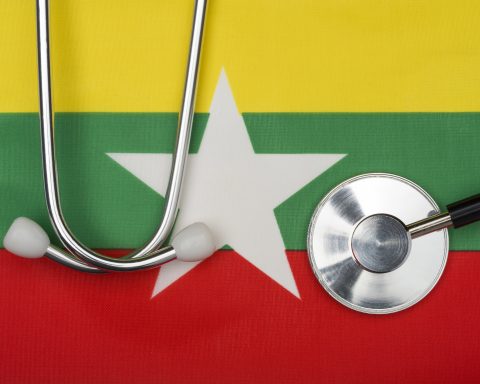Lara Shemtob is an academic clinical fellow in general practice at Imperial College London, Martha Martin is an academic clinical fellow in general practice at Imperial College London, Johannes Driessen is an academic clinical fellow in general practice at King’s College London, Alice Howe is an academic clinical fellow in general practice at Queen Mary University London, Adam Harvey-Sullivan is an academic clinical fellow in general practice at Queen Mary University London
As academic clinical fellows in general practice across London we are stakeholders in general practice at the outset of our careers. We discussed our concerns about the future of general practice and our futures in the speciality at a regional teaching session in 2023. Here is a summary of what we discussed.
- Some GPs have up to 70 patient contacts per day. On average, GPs deliver 50% more than the BMA’s safe limit of 25 patient contacts per day.
- A substantial proportion of appointments last more than 10 minutes. In some months, around 20% of appointments delivered last more than 20 minutes.
- The number of appointments being delivered in general practice month to month is more than the speciality is resourced for. In February 2023, 27.3 million appointments were booked, almost 2 million more than in February 2022. 44% of appointments in February 2023 were booked to take place the same day, while 85% were booked to take place in two weeks.
The job can be emotionally and physically demanding to the extent it is common to feel working as a full time GP would be unsustainable.
The job can be emotionally and physically demanding to the extent it is common to feel working as a full time GP would be unsustainable. This can create internal conflict, confusion and self-doubt… Surely ten sessions of clinical general practice should be doable? Many of us have asked the question “Is it me or GP?”
- There has been a steady decline in the number of FTE qualified GPs in England over the past five years, yet 80% of GPs work more than 35 hours per week. Colleagues restrict their clinical sessions to try to contain workload which still equates to full-time hours.
- The amount of non-patient facing work (up to 40% of workload) is increasing and GPs are working up an average of up to 46% extra unpaid hours to get all of their work done.
- There is a recruitment and retention crisis; the target of 5000 more GPs by 2020 set in 2016 is long gone, and we are moving further away from the 2019 target of 6000 more GPs by March 2024. The most recent national GP worklife survey showed that overall satisfaction with the job has decreased from 2019 to 2021 and over a third (33.4%) indicated that they may leave patient-facing work in the next 5 years (rising to 60.5% in the over 50’s).
- The number of patients registered at GP surgeries has increased in the same timeframe. People living in the most deprived areas have fewer GPs per person than people living in the least deprived areas, which relates to the inverse care law.
The staffing deficit is pervasive across health and social care but general practice is a particularly hard-hit specialty. While the number of GPs is falling, the numbers of hospital doctors and consultants are increasing. Yet, as much as 90% of healthcare is delivered in primary care for <10% of the department of health and social care’s budget.
As ACFs we have a role in promoting GP as an intellectually rigorous discipline, but this is also the role of stakeholders.
GP can be perceived as an inferior specialty by some stakeholders. In 2017, 39% of medical students that responded to an RCGP survey stated that tutors from hospital specialties had put them off a career in GP, and just 3% of medical students thought that a career in GP would be intellectually challenging. In 2016, the ‘Wass report’ set out ways in which medical schools could increase recruitment to general practice. However, Dr Euan Lawson details five areas in which medical schools are still failing; funding, widening access to medical schools, portraying GP as a ’lifestyle career’, placements in GP and role modeling within GP. As ACFs we have a role in promoting GP as an intellectually rigorous discipline, but this is also the role of stakeholders. General practice needs to be seen as a respectable specialty by all stakeholders if we are going to meet the targets set out by the government and make GPs feel valued.
The top four factors driving challenging working conditions we spoke about
- Demand outweighing resource across the whole health and social care system resulting in displaced demand on GP as one of the most accessible aspects routes to care
- Systems supporting uncapped demand including concerns around the new contract
- A policy and media focus on appointments undermining the reality around access leading to hidden administrative workloads
- The increasing complexity of care: still expected to be delivered safely in 10 minute appointments. In this high pressure and under-resourced environment clinicians’ documentation and practice are held to the same high standards with doctors being subject to complaints and litigation.
The top four factors keeping us in clinical patient-facing GP
- The privilege of patient facing work and continuity of care
- Supportive practice teams and workplace relationships
- The mentorship and pastoral care from supervisors and trainers
- The ability of GP teams to build services according to local need
Four routes to improvement
- Make the care of staff an equal priority to patient care, treating both staff and patients with kindness and compassion
- Recognise the administrative workload in general practice:
- automate where possible
- ringfence time and resource within general practice staff job plans for administrative work where it cannot automated
- Acknowledge the lack of resource to increased demand in general practice and the growing complexity of care delivered by the workforce. Call out a culture blaming GPs and practices for these system factors and respond by:
- investing in primary care to increase resource (e.g. to facilitate longer appointment times where necessary- both the BMA and RCGP support extending appointment times to 15 minutes)
- implementing infrastructure to safely contain demand to resource available
- Encourage an accurate portrayal of general practice including by the media and policy makers
- Embrace innovation. Continue to develop career paths within general practice where time is allocated to provide creative spaces to improve the healthcare system including through innovative models of care and technology, health promotion and public health. Protected and funded time for this within GP training as ACFs is an example of how this can benefit the healthcare system.
The people factors are the strongly positive aspects of the job. But the logistical working conditions must improve for the future of the specialty to be sustainable.
featured Photo by Daniel K Cheung on Unsplash









Carter Singh is a GP in Nottinghamshire. He is the chairman of the Nottinghamshire LMC and a national council member of the RCGP. The decision…